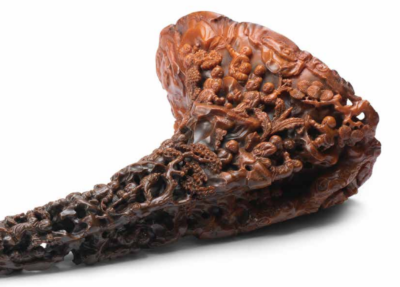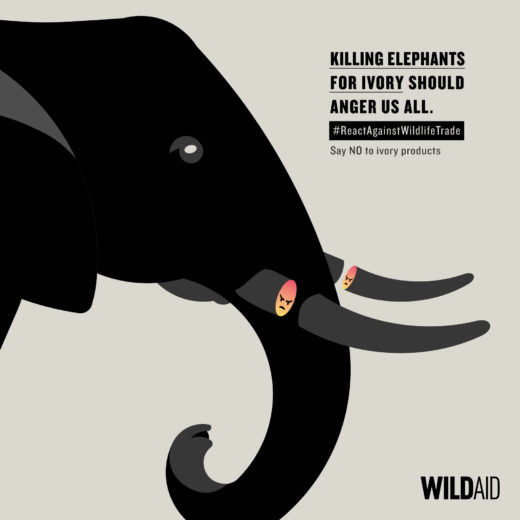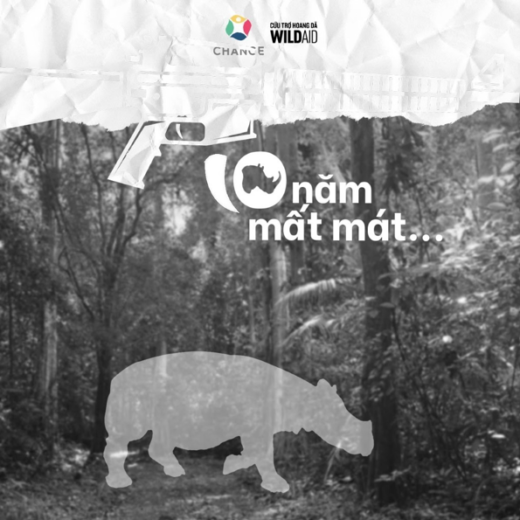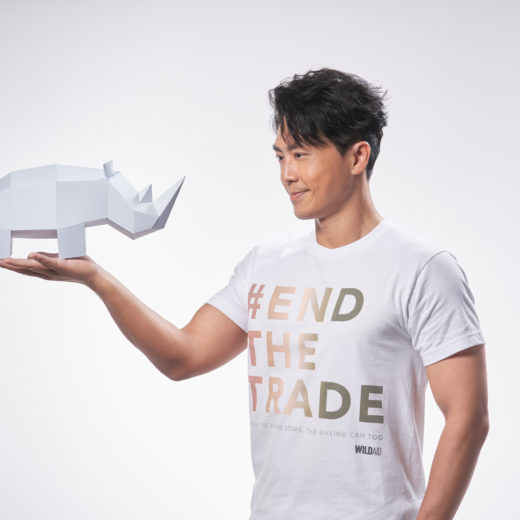
WildAid and other international wildlife conservation organizations are calling on Bonhams to immediately withdraw all 21 pieces of rhino horn from its November auction in Hong Kong SAR and to permanently ban all future sales of rhino horn. With poaching at unsustainable levels, even a small uptick in demand for antique rhino products would push rhinos closer to extinction.
The privately owned British auction house announced earlier this month that it would auction off 21 pieces of antique rhino horn. According to their catalog, “part one” is scheduled on November 27, implying more auctions are planned. Hong Kong SAR-based media have reported that some of these rhino horn carvings lack provenance and are not, in fact, genuine antiques. However, there is no way of independently verifying whether the horns are pre-CITES, which would make them exempt from legal controls in Hong Kong SAR.
“By continuing to sell rhino horn carvings, whether genuine antiques or not, Bonhams is contributing to the demand for rhino horn in East Asia and, therefore, to the mass slaughter of rhinos,” said WildAid CEO Peter Knights. “Bonhams has the opportunity to join the global community and protect rhinos by prohibiting rhino horn and rhino carvings from all future auctions.”
A letter with over 30 signatures from conservation organizations was sent to Bonhams Global CEO Matthew Girling, calling on Bonhams auctioneers to permanently stop selling rhino horn. Bonhams did not respond to a request for a meeting with WildAid.
The letter makes clear that Bonhams should permanently refuse to sell rhino horn since its parent company, Epiris, states on its website the belief that “careful management of Environmental, Social and Governance (“ESG”) issues is not only good business practice but also an essential part of delivering strong and sustainable returns for investors.” One of its specific commitments is “reduction in the consumption of raw materials, especially virgin materials or materials likely to result in loss or harm of protected habitats and/or endangered species.”
Wildaid has also circulated a petition calling on Bonhams to permanently take rhino horn off the auction block.
In recent years, the markets for, and uses of, rhino horn have expanded considerably. In addition to using it as a traditional “medicine” in East Asia, carvings and accessories such as Ming and Qing dynasty antique style carved rhino horn libation cups, have become extremely desirable commodities for high-net-worth individuals in mainland China and Hong Kong SAR, for the purposes of home decoration and speculative investment. They are also used for the purposes of bribing, gifting and investment.
Because antique horn items have sold at UK auctions for far higher prices than expected, whistleblowers have told NGOs that traders are known to stain new rhino horn with tea, colored wax or shoe polish to make it appear old.
UK antiquities expert Paul Fraser commented, “the sheer frequency of trading in rhino horn antiques suggests that a number are not genuine.” Most recently, a Hong Kong SAR-based antiques industry whistleblower described the relative ease with which smugglers could increase their profit margin by faking new rhino horn as antique.
“I’ve seen lots of raw, new, uncarved rhino horn. Those selling it are mainly African and Chinese operating through Hong Kong SAR agents […] prices range from US$10,000 to US$30,000 per horn, depending on the size,” said the informant. “One Chinese seller told me that if I bought an item, he could refer me to a rhino horn carver who charges just a few thousand US dollars to make it look old. He also told me that if I could successfully sell a fake antique rhino horn at an auction, I could easily reap tens of thousands of dollars in profit.”
There is also strong evidence that auctioned antique rhino horn carvings have been bought by East Asian bidders – or their proxies – and illegally exported to China or Vietnam, where they are purchased by wealthy individuals. According to enforcement agencies, it is known that the purchase of antique rhino horn items at UK auctions has been used as a method of laundering money.
For more than a decade, WildAid has campaigned to reduce consumer demand for rhino horn by distributing the simple message: “When the buying stops, the killing can too.” These campaigns have helped change consumer habits considerably in China and Vietnam and generate a reduction in rhino poaching in South Africa. In Kenya, rhino poaching dropped from 59 cases in 2013 to 6 in 2016. Even South Africa, which has lost thousands of rhinos to poachers since 2008, saw a 25% decrease in killings in the first quarter of 2018.
By withdrawing all rhino horn products from its auctions, Bonhams will join the global effort to crack down on criminal syndicates and protect the remaining populations of wild rhinos from poaching, trafficking, and trade.
Stay in touch and get the latest WildAid updates.
SIGN UP


